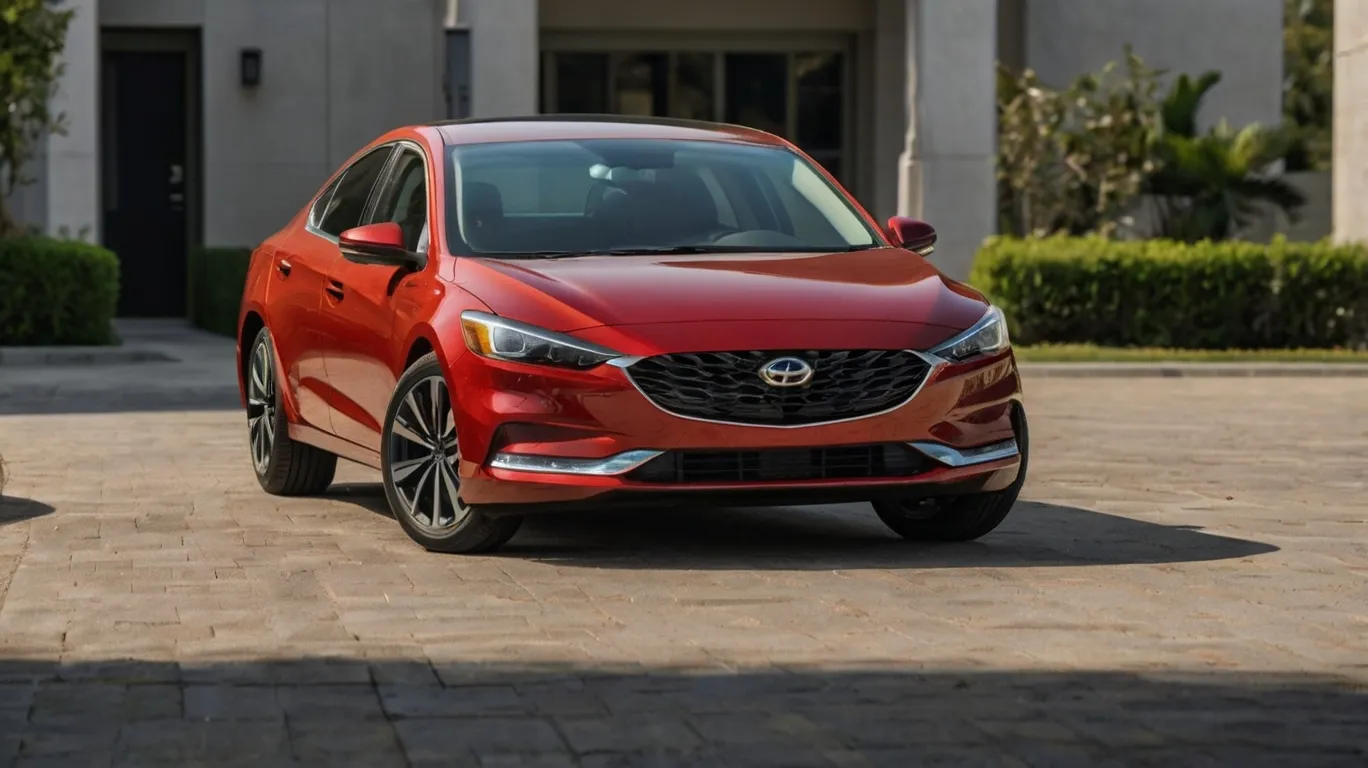How Long Can You Finance a Car? An In-Depth Exploration
🚀 How long can you finance a car? This question confronts many buyers as they navigate the complex world of auto loans and their varying terms.
With today's evolving economic landscapes and diverse consumer preferences, financing options have become increasingly flexible to accommodate different financial situations and purchasing strategies.
The standard financing period typically ranges from 36 to 72 months, though some lenders now offer extended terms of 84 or even 96 months. These longer terms may result in lower monthly payments, making them attractive to budget-conscious consumers.
However, extended financing periods often mean paying significantly more in interest over the life of the loan, potentially thousands of dollars more than shorter-term options. 🌟
🚀 Your credit score plays a crucial role in determining not only your approval odds but also the length of financing available to you.
Buyers with excellent credit scores usually qualify for the most favorable terms, including shorter financing periods with competitive interest rates.
Meanwhile, those with lower scores might find themselves limited to longer terms with higher rates, designed to offset the increased risk to lenders.
Before committing to any financing plan, carefully consider your long-term financial goals.
While the allure of smaller monthly payments might seem appealing, it's essential to calculate the total cost of ownership, including interest payments, over the entire financing period.
Remember that vehicles depreciate rapidly, and longer financing terms can lead to owing more than your car is worth – a situation known as being “underwater” on your loan. 🌟
Understanding Car Financing Basics
🚀 Car financing is essentially a loan process where a buyer borrows money from a lender to purchase a vehicle.
The terms of the financing deal, including interest rate, length of the loan, and monthly payments, are typically agreed upon before you drive off the lot. Understanding these basics is crucial as they determine the total cost of purchasing a car.
| Financing Term | Typical Interest Rate | Common Monthly Payment |
|---|---|---|
| 36 months | 3% – 7% | $450 – $600 |
| 48 months | 3.5% – 7.5% | $350 – $500 |
| 60 months | 4% – 8% | $300 – $400 |
| 72 months | 4.5% – 9% | $250 – $350 |
| 84 months | 5% – 10% | $200 – $300 |
For many, the appeal of financing comes from the ability to spread out the cost of a car over several years. However, longer loan terms can inevitably lead to higher total interest paid over time. It's important to weigh these factors carefully when selecting a financing term. 🌟
Common Car Financing Terms
Car financing terms commonly range from 36 to 84 months, with variations in between. The choice of term has significant implications for both monthly payments and the total cost of the loan.
Shorter terms typically result in higher monthly payments but reduce the amount of interest paid over the life of the loan. Conversely, longer terms lower the monthly payment but increase total interest costs. 🌟
1- Short Term (36-48 months): These loans require higher monthly payments but give you the advantage of a lower overall interest cost.
2- Medium Term (60 months): A balance between monthly payment and total interest cost, making it a popular option among many car buyers.
3- Long Term (72-84 months): These loans offer the lowest monthly payments but tend to accrue more interest over time, often surpassing the car's depreciation value.
4- Custom Terms: Some lenders offer flexible or custom terms, enabling negotiation based on your financial situation and preferences.
Factors Influencing Your Financing Length Decision

Choosing the length of your car loan involves considering several factors:
1- Your monthly budget and cash flow can dictate what you can afford to pay each month without straining your finances.
2- The car's depreciation rate is essential to consider; long-term loans may lead to negative equity, where you owe more than the car is worth.
3- Interest rates can vary significantly across different loan terms; comparing these can help you decide what works best financially.
4- Personal financial goals, such as planning for future purchases or refinancing, could impact your decision on how long to finance a car.
“The choice of a financing term should align with individual financial health and long-term goals, rather than being purely driven by the allure of low monthly payments.”
Long-Term Financing: Benefits and Drawbacks
🚀 In recent years, the trend towards long-term vehicle financing has gained traction. For many consumers, the lower monthly payments associated with long-term loans appear attractive. However, it's important to weigh these benefits against the potential drawbacks.
Opting for a 72-month or even an 84-month financing term means your monthly financial outflow will be minimized, freeing up cash for other priorities or investments.
This can be especially beneficial if you are managing other debts or financial obligations. However, the drawback lies in the accruing interest over the extended period, which can lead your total payment amount to multiply significantly.
Moreover, vehicles tend to depreciate quickly, losing a significant portion of their value within the first few years. Longer loan durations increase the risk of being “underwater,” where the loan balance exceeds the car’s actual market value. This could limit your options should you wish to sell or trade-in the vehicle before the loan is paid off.
While the convenience of long-term car financing is clear, it's crucial to conduct a thorough analysis of your current financial situation alongside future goals to ensure it is the right decision for your needs. 🌟
Potential Pitfalls of Shorter Car Financing Terms

🚀 While shorter terms offer a route to quickly owning your vehicle outright, they come with their own set of challenges. Higher monthly payments can place a greater immediate strain on cash flow, demanding rigorous budget management.
This route is ideal for those with stable, higher income levels, allowing them to manage larger monthly commitments with ease.
In exchange for the intense financial focus required in the short-term, buyers benefit from reduced total loan costs, thanks to lower interest accrued over the term. Short terms also eliminate the worry of negative equity and allow you the flexibility to sell or trade-in the car more freely.
However, they also necessitate weighing other financial priorities to ensure the increased monthly costs do not impede broader financial health and lifestyle.
Ultimately, those considering short-term car financing must possess financial discipline and stability, alongside an understanding of how this commitment aligns with other long-term financial aspirations and obligations. 🌟
Why Dealerships Push Longer Financing Terms
🚀 It's not uncommon to see car dealerships pushing longer financing terms, and there are various reasons behind this strategy. Longer loans allow dealerships to offer more attractive monthly payment plans, thereby expanding their customer base to include those who might not afford a vehicle otherwise.
Moreover, dealerships often profit from the interest on longer loans, as they can become a point of cumulative financial gains over the loan term.
By offering extended terms, dealerships not only increase their sales volume but also the potential for additional revenue through added fees and interest over time.
While extended financing options may appear tempting due to lower payments, it's essential for buyers to assess the larger financial picture beyond the monthly bill. Understanding dealer incentives can aid in negotiating better terms that can save you money in the long run. 🌟
Impact of Credit Scores on Car Financing Options
🚀 Your credit score is one of the critical factors influencing the loan terms you qualify for. A higher credit score typically offers access to better interest rates and flexible financing options, possibly allowing a shorter term to be taken without high monthly payments.
Conversely, a lower score may result in limited options, often pushing buyers toward longer terms with higher interest rates as a way to lessen monthly financial burdens.
Understanding your credit score's role in car financing is crucial for effective quantitative decision-making. Before shopping for a vehicle, reviewing and improving your credit score, if necessary, can significantly impact obtainable financial terms.
Improving even slightly can yield meaningful changes in the interest rates and flexibility of term lengths available to you.
Lenders utilize credit scores to gauge risks, which directly ties into the interest rate—so maintaining healthy credit ensures you receive the most favorable financial terms for any car purchase, regardless of its financing period. 🌟
FAQ – Common Questions
✅ What are the typical loan terms for car financing?
Commonly, car loans stretch from 36 to 84 months, with varied options depending on the lender, buyer, and specific circumstances.
✅ Does the loan term affect my monthly car payments?
Yes, longer terms typically mean lower monthly payments, but this usually results in higher long-term interest payments.
✅ How does my credit score impact my car financing options?
A higher credit score generally provides access to lower interest rates and a broader range of financing terms.
✅ Is it better to choose a shorter loan term?
This depends on personal financial situation; while shorter terms reduce interest, they require higher monthly payments.
✅ Why would a dealership recommend a longer financing term?
Dealerships often push longer terms to lower monthly payments, making vehicles more accessible and profitable through interest.
✅ Can I refinance my car if I choose a longer term?
Yes, refinancing is an option, allowing you to potentially secure better terms if your credit score improves or market rates decrease.
Conclusion
🚀 Ultimately, the decision on how long to finance a car rests on a delicate balance between monthly affordability and overall loan cost. This journey involves understanding financing basics, considering your personal financial situation, and forecasting long-term plans.
With knowledge and careful planning, buyers can navigate financing options confidently, securing vehicles that meet their needs and budgets.
Whether you've set your sights on a short-term strategy or a more extended repayment plan, the key lies in making informed decisions finely tuned to your particular circumstances and financial health. 🌟
👉 From Zero to Financial Freedom
The “From Zero to Financial Freedom” course is essential to ensure a more prosperous and peaceful future for you and your family. It's an excellent option for those seeking efficiency and quality on their journey toward financial independence.


